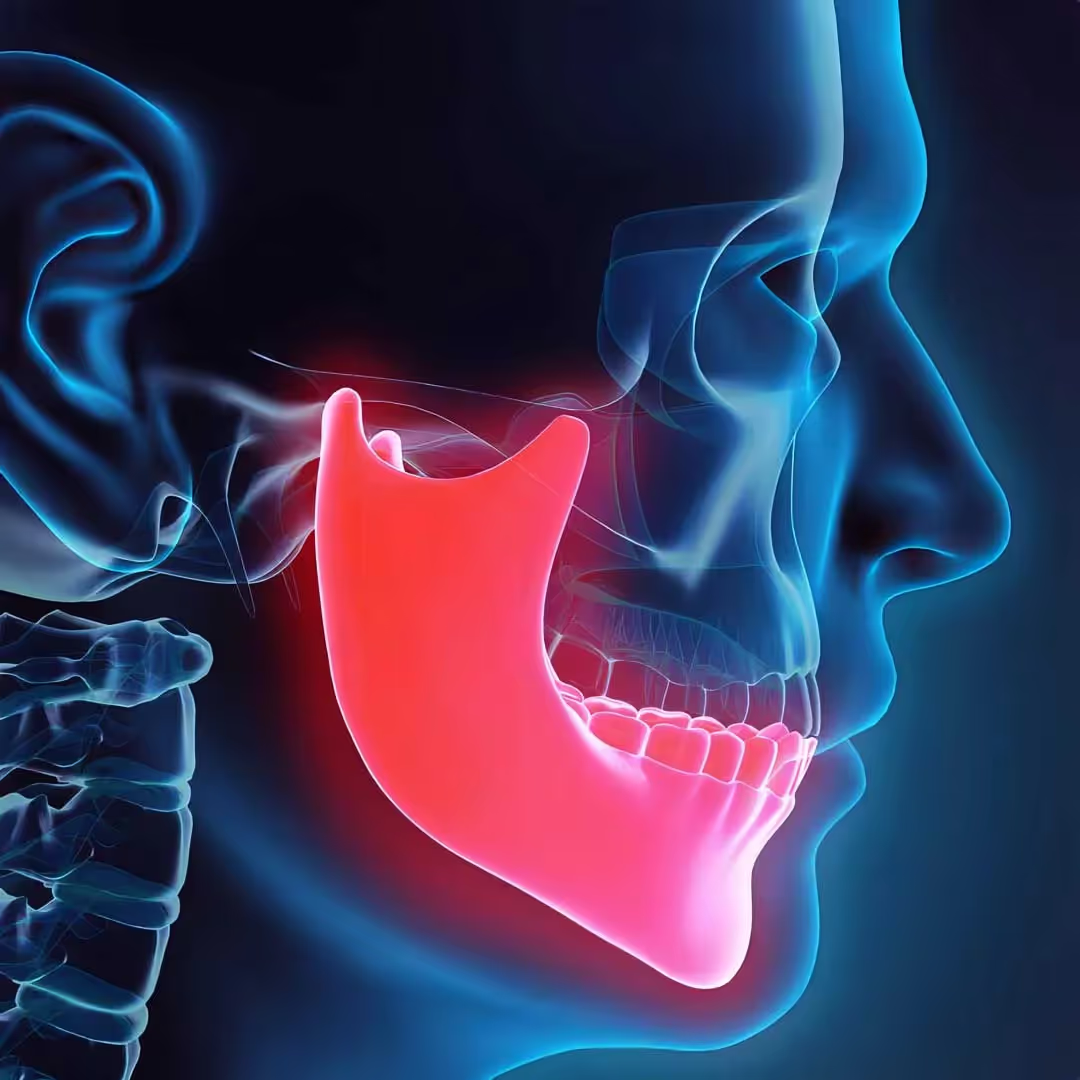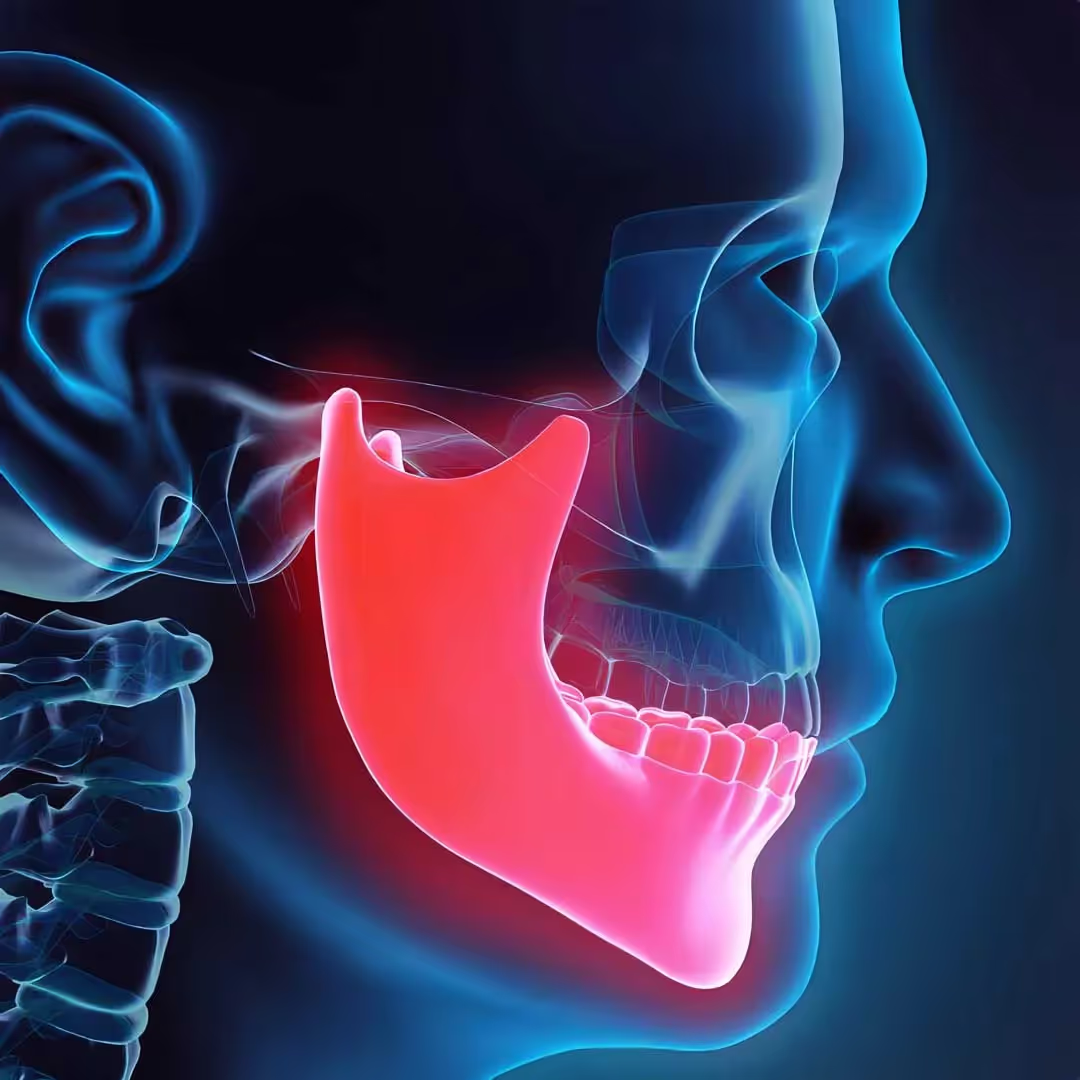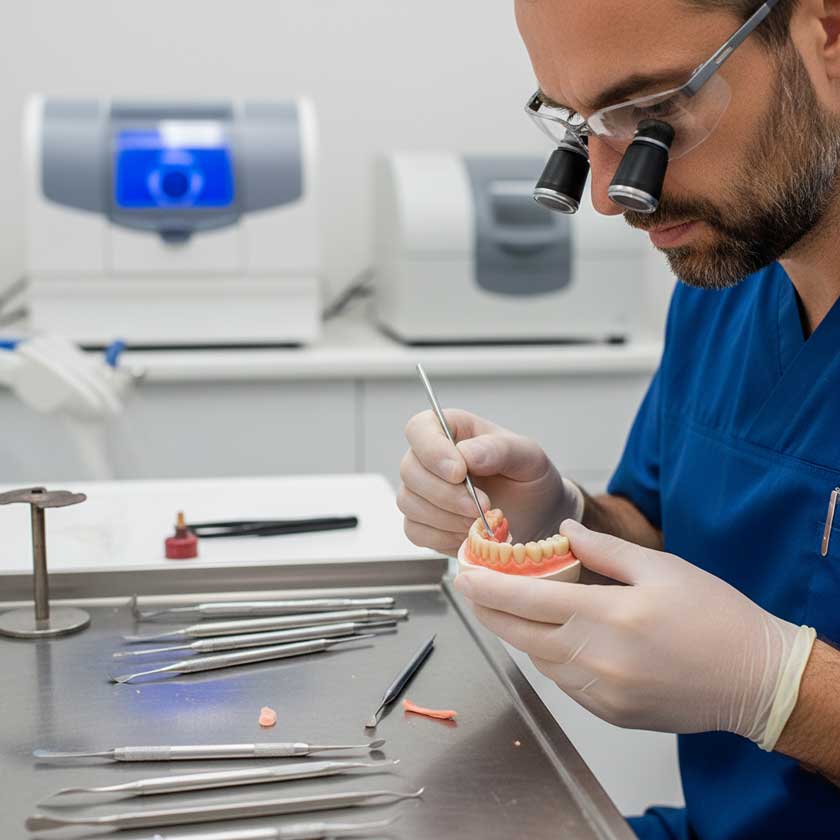Getting used to wearing dentures can take some time. However, with proper care and precautions, denture wearers can help prevent the jawbone loss that often accompanies missing teeth. We'll give you an overview of critical steps to maintain healthy jawbone density.
When you lose natural teeth due to extraction, injury, or advanced gum disease, the jawbone doesn't get the stimulation it needs. Typically, the forces exerted when chewing food provide essential stimulation that triggers ongoing bone remodeling. This helps maintain bone density. However, when a tooth goes missing, the jawbone loses this stimulus, leading to bone atrophy. Bone atrophy occurs because the absence of tooth roots results in a lack of stimulation, causing significant bone resorption, particularly within the first few months after tooth loss.
According to a 2019 study in the Indian Journal of Dentistry, as much as 25% of bone density may be lost in the first year after a tooth extraction. As the number of lost teeth increases, the rate of bone loss speeds up.
Key Takeaways:
- Ill-fitting dentures can speed up bone loss by irritating the gums and putting too much pressure on them. Getting dentures properly fitted and adjusted regularly is critical.
- Chewing gum, crunchy fruits/veggies provides extra stimulation to help prevent bone loss when wearing dentures. Retaining some natural teeth also keeps the jawbone healthier.
- Good nutrition with adequate calcium, vitamin D, vitamin K, magnesium and zinc is vital for maintaining jawbone density in denture wearers.
- Dental implants can halt bone deterioration and stimulate bone growth by mimicking tooth roots. Overdentures, hybrid dentures and All-on-4 implants utilize this effect.
- While dentures restore smiles, they accelerate jawbone loss over time. Proper denture care habits combined with healthy nutrition and possibly bone-stimulating implants can help preserve the jawbone.

Understanding bone loss.
Bone loss, also known as bone resorption, is a common issue that can affect denture wearers. It occurs when the jawbone beneath the gums is not being stimulated, leading to a decrease in bone density. This lack of stimulation often results from tooth loss, gum disease, or poorly fitting dentures. When natural teeth are lost, the jawbone no longer receives the necessary pressure from chewing, which is crucial for maintaining bone density. Over time, this can lead to significant bone resorption, making it essential for denture wearers to understand and address this issue promptly.
The effects of bone loss on denture wear.
Bone loss can have a significant impact on denture wear. As the jawbone shrinks, dentures can become loose and uncomfortable, leading to difficulties with eating and speaking. This instability can cause irritation and sores on the gums, further complicating the situation. Additionally, bone loss can cause the face to appear sunken or gaunt, affecting a person’s self-esteem and confidence. The changes in facial structure can make individuals look older than they are, impacting their overall quality of life. Addressing bone loss is crucial to ensure that dentures fit well and function properly, allowing for a more comfortable and confident smile.
Poorly fitted dentures speed up bone loss.
Ill-fitting dentures are one factor that can quicken bone loss. If dentures rub and put too much pressure on the gums, this irritation can spur deterioration. Getting dentures fitted correctly in the first place is critical. Most dentists recommend that patients wait 3-6 months after extractions to allow the gums and bone to heal before getting fitted. Bone grafts can also be considered as a treatment option for stabilizing dentures and preventing further bone loss.
Relining or rebasing dentures every 3-5 years can also help prevent bone loss. As the jawbone changes shape, even well-fitted dentures will become loose. A quick reline or rebase by your dentist can get them fit snugly again.
Lack of chewing stimulation causes bone loss.
Even with well-fitted dentures, less force is exerted on the jawbone than natural teeth. Less pressure equates to less bone-stimulating activity, so the jawbone breaks down faster.
Partial dentures are an effective solution for individuals with some remaining natural teeth, as they help maintain jawbone health by providing necessary stimulation.
Chewing gum, crunchy fruits, and vegetables can help pick up the slack by providing extra stimulation. Those with some natural teeth should do all they can to save them. Natural teeth aid chewing and keep the jawbone healthier. Your dentist can advise on gum disease treatments, crowns, and dental implants to retain remaining teeth.
Nutrition and supplements for bone health.
Good nutrition is vital for maintaining bone density throughout the body, including the jaw. Calcium, vitamin D, vitamin K, magnesium, and zinc are essential. Leafy greens, nuts, fatty fish, and bone broth provide healthy doses of these nutrients.
Those who don't get enough bone-supporting nutrients from diet alone may benefit from targeted supplements, especially vitamin D and calcium. Check with your doctor to determine the proper supplemental doses for your needs.
Procedures to prevent bone loss in denture wearers.
For those experiencing significant jawbone loss, dental implants can help halt deterioration and stimulate bone growth. Implants fuse with the jawbone, mimicking tooth roots. The titanium posts transfer chewing stimulation through to the bone.
Overdentures and hybrid dentures are two implant-supported options. As few as 2-6 implants can firmly anchor these specialized dentures. The All-on-4 and Teeth-in-an-Hour procedures both involve placing 4-6 implants in one surgery. Temporary dentures are also placed on the same day.
Bone grafting and sinus lift operations may also help revive bone health before getting implants. If you have severe bone loss, seeing an oral surgeon or prosthodontist can help you find the best solutions.
Treatment options for existing bone loss.
Fortunately, there are several treatment options available for existing bone loss. One of the most effective solutions is dental implants. Implant-supported dentures can help to stimulate the jawbone, preventing further bone loss and providing a secure and comfortable fit. These implants act like natural tooth roots, transferring the pressure from chewing to the jawbone and promoting bone health. Additionally, bone grafting can be used to replace lost bone tissue, restoring the natural shape and appearance of the face. This procedure involves transplanting bone tissue to the affected area, encouraging new bone growth. Other treatment options include soft liners and traditional dentures, which can provide a temporary solution for denture wearers while they explore more permanent options.
Check out services available near you in Caldwell and Boise, Idaho.
While dentures restore the appearance of a smile, those who wear dentures may experience accelerated jawbone loss rather than prevention. Still, proper denture care and chewing habits can slow the process. A healthy diet, dental checkups every six months, and possibly bone-stimulating implants will help denture wearers preserve their jawbone and oral health over the long term.
Uncomfortable, loose dentures making life difficult? Don't wait - visit New Smile Dentures today for an evaluation. Our skilled prosthodontists specialize in creating custom-fit dentures to restore your smile and confidence. We also offer denture relining and rebasing to improve fit, along with implant solutions to securely anchor dentures long-term. Call now to schedule a consultation - let's get you smiling comfortably again: www.newsmiledentures.com
In conclusion, bone loss is a common issue that can affect denture wearers. Understanding the causes and effects of bone loss is essential for addressing the issue promptly. Fortunately, there are several treatment options available, including dental implants, bone grafting, and traditional dentures. By taking dentures out at night and practicing good oral hygiene, denture wearers can help to prevent jawbone loss and maintain a healthy and comfortable smile. Regular dental checkups and consultations with a prosthodontist or oral surgeon can provide further guidance and support in managing bone health effectively.
FAQ
What are denture implants?
Denture implants are titanium posts surgically inserted into the jawbone to simulate the root of a natural tooth. They provide stability and prevent jawbone loss.
How do denture implants prevent bone loss?
Denture implants stimulate the jawbone, just like natural tooth roots, preventing bone loss that commonly occurs with tooth loss. They also help maintain the density and structure of the jawbone.
What are denture relines and rebases?
Denture relines and rebases are procedures dentists perform to ensure a proper denture fit. Reline involves resurfacing the denture base to improve fit, while rebase consists of replacing the entire base. These procedures help prevent bone resorption and maintain a good fit.
How can taking dentures out at night help prevent jawbone loss?
Taking dentures out at night can help to prevent jawbone loss by giving the jawbone and surrounding tissues a chance to rest. When dentures are worn continuously, they can put pressure on the jawbone, leading to bone resorption. By removing the dentures at night, the jawbone can relax, reducing the risk of bone loss. Additionally, taking dentures out at night can also help to prevent denture-related bone loss by allowing the gums and surrounding tissues to recover from the constant pressure of the dentures. This practice promotes better oral health and helps maintain the integrity of the jawbone over time.
How can taking dentures out at night helps prevent jawbone loss?
Taking dentures out at night allows the jawbone to rest and recover. It reduces the constant pressure on the jawbone, which can contribute to bone loss. This practice promotes better oral health and helps prevent bone resorption.
What are implant-supported dentures?
Implant-supported dentures are dentures that are anchored to dental implants. These implants provide additional support and stability to the dentures, preserving jawbone health and preventing further bone loss.
What are some soft food options that can help prevent jawbone loss?
Soft foods like smoothies and soups reduce the pressure on the jawbone while eating. They minimize the risk of bone resorption and provide proper nutrition for maintaining oral health.
Can dental implants be used in conjunction with dentures?
Yes, dental implants can be used in conjunction with dentures to provide additional support. This combination, known as implant-retained overdentures, prevents further bone loss and enhances the stability and comfort of dentures in the mouth.
How can I ensure a proper denture fit?
To ensure a proper denture fit, it is important to visit a prosthodontist or oral surgeon specializing in dentures. They can assess your jaw structure, fit the dentures correctly, and make any necessary adjustments to ensure a comfortable and secure fit.
Are there any factors that can contribute to jawbone loss with dentures?
Several factors can contribute to jawbone loss with dentures. These factors include periodontal disease, bruxism (teeth grinding), smoking, poor diabetic control, hormone therapy, and the use of bisphosphonates. Proper management of these factors can help prevent bone loss.
How often should I see my dentist for denture maintenance?
Regular dental visits are crucial for denture maintenance. Your dentist will assess the fit of your dentures, perform necessary adjustments, and recommend relines or rebases when needed. Visiting your dentist at least once a year is generally recommended, but individual needs may vary.








